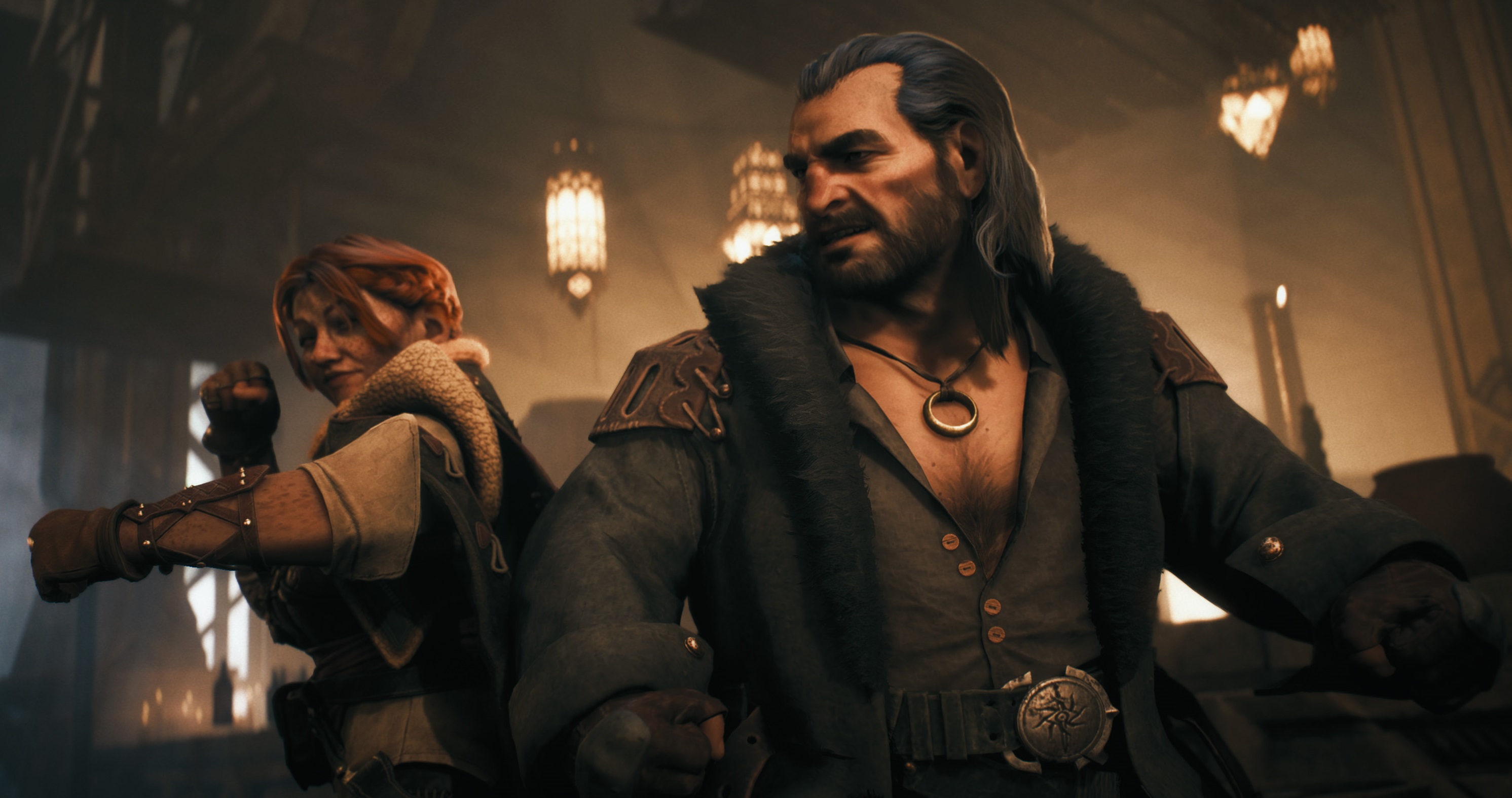Dragon Age: The Veilguard can be played entirely offline and won't have microtransactions: 'Our focus is on making this the most complete singleplayer game we possibly can'
Game director Corinne Busche said enabling offline play has been "a really big request" from fans.

As someone with an occasionally dodgy internet connection, videogames that require an internet connection even for solo play is a regular source of frustration. So I was very happy to hear that BioWare's upcoming Dragon Age: The Veilguard will not require an internet connection to play, nor will it offer any sort of microtransactions.
The previous Dragon Age game, Inquisition, used a website called Dragon Age Keep for players to configure the world state they wanted—essentially a way to carry over the decisions you made in the previous Dragon Age games (and their consequences) without uploading old saves. In a recent interview with IGN, game director Corinne Busche said The Veilguard will not make use of Dragon Age Keep, but will instead have a built-in system that provides a refresher on everything that's happened so far and enables players to make (or remake) all of their world-changing decisions of past games from within Veilguard's character creator.
Part of that is for practical reasons—it's been 10 years, after all—but in a live Q&A session on the BioWare Discord server today, Busche said it also means the game can avoid reliance on an external connection.
"It is very much important to us that [the system] is built into the client," Busche said. "You can play this game entirely offline. No connection, you don't have to link to your EA accounts. That's been a really big request."
Busche went back to that point later in the interview, saying BioWare is "100% focused on this being the most complete game we can make it."
"I just want to underscore this, I want to emphasize it. There's not going to be any microtransactions, there's not going to be any battle passes. You don't have to connect online. Our focus is on making this the most complete singleplayer game we possibly can."
The reaction to what we've seen of Dragon Age: The Veilguard has been decidedly mixed, but this implicit acknowledgement that not everything has to be a never-ending live service extravaganza is encouraging. The internet is pretty ubiquitous these days, yes, but connectivity requirements leave games and their players at the mercy of technical problems and end-of-service shutdowns, not to mention what happens when you want to hit the road with your shiny new Steam Deck.
The biggest gaming news, reviews and hardware deals
Keep up to date with the most important stories and the best deals, as picked by the PC Gamer team.
And call me old-fashioned (or just weird) if you will, but it's a matter of principle, too: I've gotten into Ghost Recon Breakpoint recently and it's great (yes, it's true, Breakpoint doesn't suck anymore, and full credit to Ubisoft for sticking with it and turning it into a genuinely good shooter) but it chaps my ass that even when I want to play alone, I have to be connected to remote servers.
I don't want to read too much into it, but I will allow myself a little bit of optimism as a treat and wonder if maybe this is a sign that game companies are recognizing that online requirements for games that don't really need them are an albatross: In May, Ubisoft—the Ghost Recon Breakpoint guys—made a point of noting that the upcoming Assassin's Creed Shadows, once installed, will not require the internet to run: "You will be able to play the entire journey offline, and explore Japan without any online connection."

Andy has been gaming on PCs from the very beginning, starting as a youngster with text adventures and primitive action games on a cassette-based TRS80. From there he graduated to the glory days of Sierra Online adventures and Microprose sims, ran a local BBS, learned how to build PCs, and developed a longstanding love of RPGs, immersive sims, and shooters. He began writing videogame news in 2007 for The Escapist and somehow managed to avoid getting fired until 2014, when he joined the storied ranks of PC Gamer. He covers all aspects of the industry, from new game announcements and patch notes to legal disputes, Twitch beefs, esports, and Henry Cavill. Lots of Henry Cavill.
- Lauren MortonAssociate Editor

